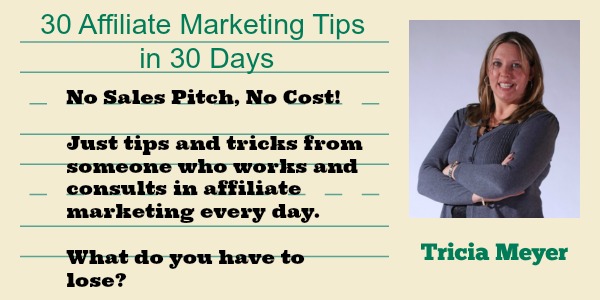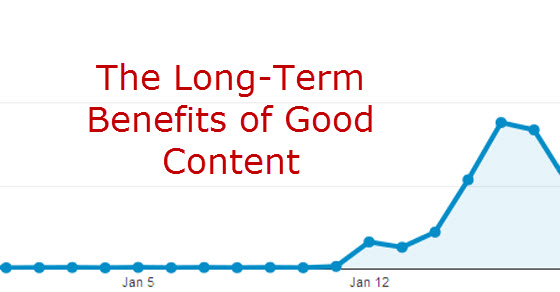I’m going to attempt to do something that I have never done before–keep my mouth shut (for a few days). I have a tendency to shout everything I know from the rooftops as soon as I know it. I tend to “overshare” what I know about affiliate marketing. I had a great idea to write a blog post about 30 of my favorite affiliate marketing tips.

After almost 10 years in the industry, I have a lot of insider information plus tried and true techniques. Why not put them all into one big blog post and give it to the world? But how would I know if anyone is actually reading and using the tips?
So I have decided instead to include them in my newsletter and space them out over a month. You won’t find the list anywhere on my site. You can only get it if you subscribe to my newsletter.
Am I Trying to Bribe You?
Sort of. I do want you do sign up for my newsletter. But more than that, I want to engage with you. Once you sign up, I want to connect with you on LinkedIn or G+. After you get the first set of tips, I want you to email me back and tell me whether I am a genius or a total faker.
I want us to be lifelong friends who eat chocolate together and paint each other’s nails!!!
Well…that may be taking it just a little too far. I’m actually not much of a nail painter. What I do want is for us to see how we can help each other. If you like my tips, give me one of your own. If you are reading my site, tell me about yours, too.
Why Am I Doing This?
Quite a few reasons. One is inspired by the back story as well as the actual post Story Time: All Cookies Are Not Equal. Everyone is at a different stage in the growth of their affiliate marketing businesses. I want to be a part of the solution in helping each other grow even when times are tough.
Another reason is that I have a lot of information in my head that I forget to share until you get me talking about it. Sit with me at Affiliate Summit and I may go on for 2 hours about the best ways to get higher commissions (see what I mean about how I can’t keep my mouth shut?). This is my way of informally formally putting those type of discussions into one place.
Selfishly, I want to grow my list. If I keep posting everything for the world to see, you don’t have any motivation to sign up and connect with me. Now you have a reason!
Take A Chance and Tell a Friend
What’s the worst thing that can happen? You sign up for my list and start getting the tips and find them useless and unsubscribe. That’s okay. You tried. I tried. What’s the best that can happen? You learn something new. I make some new friends and learn from you, too.
Sign up for my newsletter below! Tell a friend if you think they would be interested. Expect a series of three emails in the next month, each with 10 tips.
And when you sign up and get that first email from me, please do respond and tell me a little about yourself. I’m anxious to hear from you!

 This morning I received bad news from a merchant that my members (and I personally) love. The merchant was “streamlining” their program and decided to drop us. I checked our stats and saw that we had 34 sales in about 9 weeks. That’s not huge, but it is consistent. My first thought was that maybe they decided to drop incentive sites for ROI reasons. So I checked my “big dog” competitors and found that they were still there.
This morning I received bad news from a merchant that my members (and I personally) love. The merchant was “streamlining” their program and decided to drop us. I checked our stats and saw that we had 34 sales in about 9 weeks. That’s not huge, but it is consistent. My first thought was that maybe they decided to drop incentive sites for ROI reasons. So I checked my “big dog” competitors and found that they were still there. The email heard round the industry!
The email heard round the industry! 
